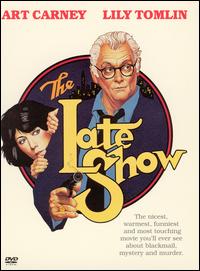
Robert Bernard Altman was an American film director, screenwriter, and producer. He was a five-time nominee of the Academy Award for Best Director and is considered an enduring figure from the New Hollywood era. His most famous directorial achievements include M*A*S*H (1970), McCabe & Mrs. Miller (1971), The Long Goodbye (1973), Nashville (1975), 3 Women (1977), The Player (1992), Short Cuts (1993), Gosford Park (2001), and The Company (2003).
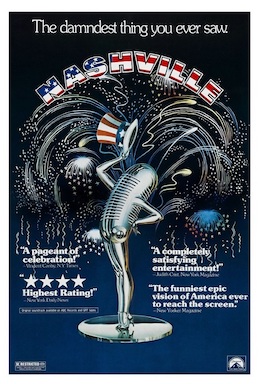
Nashville is a 1975 American satirical musical comedy-drama film directed and produced by Robert Altman. The film follows various people involved in the country and gospel music industry in Nashville, Tennessee, over the five-day period leading up to a gala concert for a populist outsider running for president on the Replacement Party ticket.
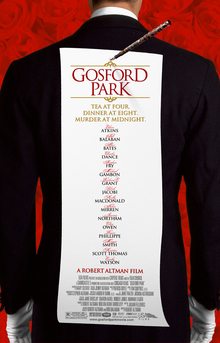
Gosford Park is a 2001 satirical black comedy mystery film directed by Robert Altman and written by Julian Fellowes. It was influenced by Jean Renoir's French classic La Règle du jeu.

Mary Jean "Lily" Tomlin is an American actress, comedian, writer, singer, and producer. Tomlin started her career in stand-up comedy and sketch comedy before transitioning her career to acting onstage and on-screen. In a career spanning over fifty years, Tomlin has received numerous accolades, including seven Emmy Awards, a Grammy Award, and two Tony Awards. She was also awarded the Kennedy Center Honor in 2014 and the Screen Actors Guild Life Achievement Award in 2017.
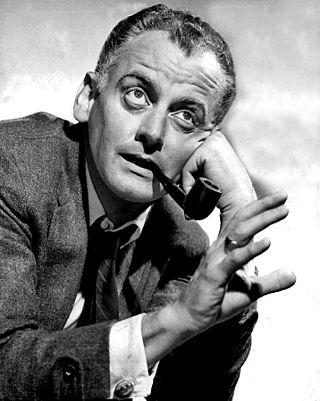
Arthur William Matthew Carney was an American actor and comedian. A recipient of an Academy Award, a Golden Globe Award, and six Primetime Emmy Awards, he was best known for his role as Ed Norton on the sitcom The Honeymooners (1955–1956).

Gloria Rose "Barbara" Turner was an American screenwriter and actress. The actress Jennifer Jason Leigh is her daughter.

John Nicholas Cassavetes was a Greek-American filmmaker and actor. He began as an actor in film and television before helping to pioneer modern American independent cinema as a writer and director, often producing and distributing his films with his own money. He received nominations for three Academy Awards, two BAFTA Awards, four Golden Globe Awards, and an Emmy Award.

The Player is a 1992 American satirical black comedy mystery film directed by Robert Altman and written by Michael Tolkin, based on his own 1988 novel of the same name. The film stars Tim Robbins, Greta Scacchi, Fred Ward, Whoopi Goldberg, Peter Gallagher, Brion James and Cynthia Stevenson, and is the story of a Hollywood film studio executive who kills an aspiring screenwriter he believes is sending him death threats.

The Writers Guild of America Awards is an award for film, television, and radio writing including both fiction and non-fiction categories given by the Writers Guild of America, East and Writers Guild of America West since 1949.
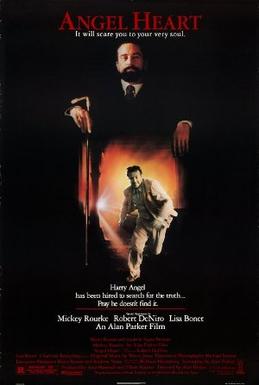
Angel Heart is a 1987 American neo-noir psychological horror film, an adaptation of William Hjortsberg's 1978 novel Falling Angel. The film was written and directed by Alan Parker, and stars Mickey Rourke, Robert De Niro, Lisa Bonet, and Charlotte Rampling. Harry Angel (Rourke), a New York City private investigator, is hired to solve the disappearance of a man known as Johnny Favorite. His investigation takes him to New Orleans, where he becomes embroiled in a series of brutal murders.

Short Cuts is a 1993 American comedy-drama film, directed by Robert Altman. Filmed from a screenplay by Altman and Frank Barhydt, it is inspired by nine short stories and a poem by Raymond Carver. The film has a Los Angeles setting, which is substituted for the Pacific Northwest backdrop of Carver's stories. Short Cuts traces the actions of 22 principal characters, both in parallel and at occasional loose points of connection. The role of chance and luck is central to the film, and many of the stories concern death and infidelity.
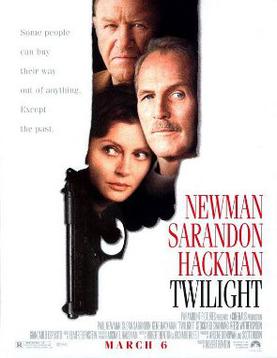
Twilight is a 1998 American neo-noir thriller film directed by Robert Benton, written by Benton and Richard Russo, and starring Paul Newman, Susan Sarandon, Gene Hackman, Reese Witherspoon, Stockard Channing, and James Garner. The film's original score was composed by Elmer Bernstein.
Robert Douglas Benton is an American screenwriter and film director. A seven-time Academy Award nominee and three-time winner, he is best known as the writer and director of the film Kramer vs. Kramer, for which he won the Academy Award for Best Director and the Academy Award for Best Adapted Screenplay. He later won a third Academy Award in the category of Best Original Screenplay for Places in the Heart (1984). His first script as a writer was written with David Newman for the 1967 film Bonnie and Clyde.

A Prairie Home Companion is a 2006 American musical comedy film directed by Robert Altman and is his final film. It is a fictional representation of behind-the-scenes activities at the long-running public radio show of the same name. The film received mostly positive reviews and was a moderate box-office success on a small budget. The film features an ensemble cast including Woody Harrelson, Tommy Lee Jones, Garrison Keillor, Kevin Kline, Lindsay Lohan, Virginia Madsen, John C. Reilly, Maya Rudolph, Meryl Streep, and Lily Tomlin.

The Leopard Man is a 1943 American horror film directed by Jacques Tourneur, and starring Dennis O'Keefe, Jean Brooks, and Margo. Based on the book Black Alibi by Cornell Woolrich, it follows a series of violent murders in a town in New Mexico, which coincide with the escape of a leopard from a nightclub.
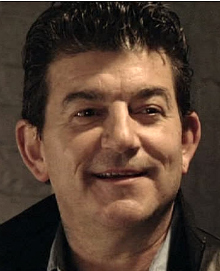
Nicholas Charles "Nick" Cotton is a fictional character from the British soap opera EastEnders played by John Altman on a semi-regular basis from the soap's debut episode on 19 February 1985. Altman has stated that his initial exit was due to producer Julia Smith demanding he was written out after he opposed a decision to make his character gay. After Smith's departure, the character made numerous brief or more protracted stints until his onscreen death in February 2015, which was written to coincide with the 30th anniversary of EastEnders.

The Big Broadcast of 1936 is a 1935 American comedy film directed by Norman Taurog, and is the second in the series of Big Broadcast movies. The musical comedy starred Jack Oakie, Bing Crosby, George Burns, Gracie Allen, Ethel Merman, The Nicholas Brothers, Lyda Roberti, Wendy Barrie, Mary Boland, Charlie Ruggles, Akim Tamiroff, Amos 'n' Andy, Bill "Bojangles" Robinson, and Argentinian tango singer Carlos Gardel.

California Split is a 1974 American comedy-drama film directed by Robert Altman and starring Elliott Gould and George Segal as a pair of gamblers. It was the first non-Cinerama film to use eight-track stereo sound.
"Frankie and Johnny" is a murder ballad, a traditional American popular song. It tells the story of a woman, Frankie, who finds her man Johnny making love to another woman and shoots him dead. Frankie is then arrested; in some versions of the song she is also executed.
